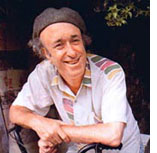By Danny Bloom

CHIAYI CITY, Taiwan — A new documentary by film director Alison Klayman, titled Ai Weiwei: Never Sorry is screening now in Taipei. While the film has not been shown in mainland China yet, the controversial artist and photographer, Ai Weiwei, has seen it and gave it a big thumbs up, Klayman said.
How the film came to be is an interesting story, and it’s a Jewish story, too.
Klayman grew up in the Philadelphia area and graduated in 2006 from Brown University, where she majored in history and wrote her seniorthesis about ”slavery and servitude in 18th Century Rhode Island.” Six years later, she’s the director of a well-received documentary about Chinese artist and social provocateur Ai Weiwei, which recently opened in limited release in Taiwan.
In addition to speaking Chinese which she picked up while working on the film for four years, Klayman also speaks Hebrew, noting that shebegan learning that language in elementary school when she attended Jewish Day Schools in the Philadelphia area from kindergarten to senior year of high school. In addition, she spent one semester during her junior year in Israel.
When asked if her Jewish upbringing and values influenced her in wanting to make a documentary about the outspoken Ai, Klayman said: “I think I grew up with an emphasis on Jewish values being strongly rooted in social justice, through my parents and my formal Jewish education in the Philadelphia area. [In terms of my values], I also think my Holocaust education and my being the granddaughter of Holocaust survivors always put a premium on speaking out, because — as Ai Weiwei says in the film: “If you don’t act, the danger becomes stronger.”
Asked if Ai Weiwei during his sojourn in New York earlier in his life had come to know much about Jewish culture in America, Klayman said: “Ai Weiwei feels very familiar with Jewish people from his time in New York, and he even had a Chasidic landlord once. He knew I was Jewish,though it wasn’t something we talked about in terms of religion but probably more in terms of culture. He himself does not follow any religion, but he does love bagels. I have eaten many New York bagels with him, and the last time I was in Beijing I brought him some which he shared with his whole staff.”–
Klayman spent four years in China, from 2006 to 2010, and during that time she took ”all kinds of jobs and worked under all kinds of visas, including a Z work visa and a J journalist visa,” she said.
Klayman first met Ai Weiwei in a roundabout way in 2008, she said. “I first met Ai Weiwei when my roommate in Beijing, Stephanie Tung, was curating an exhibition of his photographs for a local gallery there, and she invited me to make a video to accompany the show,” Klayman said. “Ai Weiwei liked the video [and this led out the]building of a trusting relationship. Those first few weeks of filming were enough to convince me that he was a charismatic and fascinating character and that I wanted to dig deeper into his story.
“I had filmed 20 hours for a 20-minute video, and in that time we covered a lot of topics that I wanted to pursue in greater detail that didn’t make it into the exhibition video, like about his upcoming earthquake campaign and how he fights censorship on his blog, but also bigger questions like what motivates him and how he accomplishes all that he does.”
In the poster for the movie, Ai Weiwei seen is giving viewers the finger. During a recent press conference in Taipei, a photographer for a local newspaper shot a photograph of Klayman giving the finger in a playful way as part of the photo call.
When asked what she thought the meaning of the finger gesture as for Mr. Ai, and what the meaning of the gesture was for her at her press conference, Klayman said: “That’s a really great question, I’ve been thinking a lot about what it means for Ai Weiwei, and my interpretation, which I also apply to my own use of the gesture, is that it is about the ability/right we have to defy, challenge, mock, question any power structures or symbols of power in our world. I also think it stands for a rebellious and also fun-loving attitude.”
The documentary has been shown in New York and Taipei and other world capitals, but it has not yet been screened — publicly — in Beijing, according to sources.
“We’re limited in our ability to show the movie publicly in China,” Klayman said. “Later this year we hope to get the film out inside China using the same methods Ai Weiwei uses to distribute his own films, including online and underground methods.”
Asked if Ai Weiwei has seen the film yet, she said: “Yes, he has. We showed it to him in Beijing before the Sundance film festival in Colorado. His immediate response was that this is an engaging film but also an accurate depiction of what he has been trying to accomplish the last few years.”
“This film is about freedom of expression,” Ai Weiwei told her, she said, quoting his words.
*
Bloom is Taiwan bureau chief for San Diego Jewish World and an inveterate web surfer. He may be contacted at dan.bloom@sdjewishworld.com